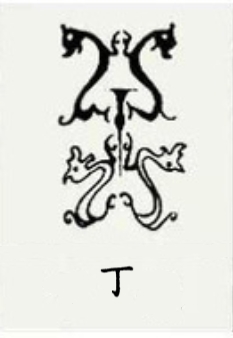The Ding (dīng) surname is one of China’s most storied family names, reflecting the nation’s rich history of cultural blending and resilience. For readers interested in Chinese heritage, the story of the Ding clan offers a fascinating window into how surnames evolved through royal lineages, ethnic integration, and cross-cultural exchange.

Ⅰ、Origins of the Ding Surname:
1. Jiang surname branch: taking the posthumous title as the surname
The most mainstream origin of the Ding surname is closely related to Jiang Taigong (Jiang Ziya). Jiang Ziya's son, Jiang Ji (Qi Dinggong), was awarded the posthumous title of "Dinggong" for his meritorious service in assisting King Cheng of Zhou and King Kang of Zhou. His descendants took the posthumous title as their surname, forming the main of the Ding family, and they regard Jiang Ji as the founding ancestor of their surname.
2. Surname and feudal inheritance
Shang Dynasty Connection: The Ding surname also originated from the Ding Hou (丁侯), a Shang Dynasty (1600–1046 BCE) noble who resisted the Zhou conquest. His descendants preserved the name as a symbol of their heritage.
Song State Scholars: During the Zhou Dynasty, a scholar-official in the Song State (modern Henan) earned the posthumous title Ding Gong, and his family adopted “Ding” as their surname.
3. Cultural Adaptation and Integration
Sun Clan Conversion: In the Three Kingdoms period (220–280 CE), a branch of the Sun family (related to Sun Quan of Eastern Wu) changed their surname to Ding after a political dispute.
Ethnic Minority Adoption: Over centuries, groups like the Xianbei, Mongolians, and Hui Muslims adopted the Ding surname, blending their identities with Han Chinese culture.
Ⅱ、Notable Figures:
1. Politics and military
Ding Fu: A Han Dynasty general who helped Emperor Gaozu (Liu Bang) unify China, earning the title Marquis of Yangdu.
Ding Ruchang: The late Qing Dynasty's Beiyang Fleet commander, who vowed not to surrender in the Sino-Japanese War of 1894 and for his country, becoming a symbol of national integrity.
2. Cultural and Academic Pioneers
Ding Gong: A master of Confucian classics in the Eastern Han Dynasty, he specialized in the "Gongyang Yan's Spring and Autumn Ann", had thousands of students, and promoted the spread of Confucianism.
Ding Du: A Song Dynasty linguist who compiled the Jiyun, a groundbreaking dictionary of Chinese phonetics.
Ding Jing: Founder of the Zhe School of Seal Carving during the Qing Dynasty, revolutionizing Chinese calligraphy.
3. Guardians of Heritage
Ding Bing: A Qing scholar who preserved China’s literary legacy by restoring the Complete Library of the Four Treasuries after wartime destruction.
Ⅲ、Cultural Values:
1. Ancestral Homelands
The Jiyang Commandery (modern Henan) became the Ding clan’s heartland, symbolizing their northern roots.
The Deer Taming Hall, inspired by the legend of filial piety of Ding Mao, remains a cultural emblem of family loyalty.
2. Family Teachings
Ding clans emphasized values like “Loyalty, Filial Piety, and Integrity”. The Tang Dynasty’s Guangxiao Village was celebrated for its multigenerational households, honored by emperors as models of virtue.
3. Artistic Contributions
Ding Xilin: A 20th-century playwright who fused scientific thinking with dramatic storytelling.
Ding Henian: A Yuan Dynasty poet-pharmacist whose Herian Hall pharmacy bridged medicine and literature.
Ⅳ、Social impact
1. Migration Patterns
Originating in Shandong, the Ding surname spread south during the Han Dynasty, later reaching Fujian and Guangdong. Today, Jiangsu and Hubei provinces have the largest Ding populations.
Overseas Ding communities thrive in Southeast Asia, North America, and Europe, preserving traditions while embracing new cultures.
2. Cultural Diplomacy
The Ding surname appears in Vietnamese and Korean histories, reflecting its role in East Asian cultural exchange.
Hui Muslim Ding families in Quanzhou (e.g., the Chen Dai Clan) exemplify harmony between Islamic and Han Chinese traditions.
Conclusion:
The history of the Ding surname is a microcosm of the diverse integration of Chinese civilization. From the feudal lords of the Shang and Zhouasties to the ethnic name change, from the Jiyang county family to the global distribution, the Ding surname has always been based on the spirit of "loy and filial piety" as its core, writing a unique cultural gene in the long river of history. Contemporary people with the Ding surname are not only guardians of culture but also participants in cross-civilization dialogue, and their stories provide vivid footnotes for understanding Chinese surname culture.